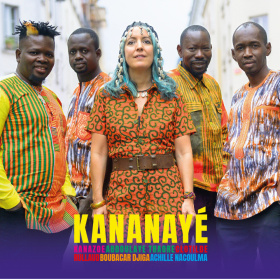Rwanda: Collection of artists' royalties a big flop
According to the Intellectual Property Law, establishments have to pay artists royalties for playing their music. However, six months after instruction from the Rwanda Development Board (RDB) to the establishments to comply with the law, nothing much has changed.
 Rwandan singer Cécile Kayirebwa filed a lawsuit against radio stations for piracy in 2012.
Rwandan singer Cécile Kayirebwa filed a lawsuit against radio stations for piracy in 2012.
So far, the Rwandan Society of Authors (RSAU), a management organisation, has only collected royalties from four establishments in the country. Media houses that failed to pay royalties stated that the law overlooked the existing co-dependent relationship between them and the artists.
Unlike other organisations, the media does not make revenue when it plays local artists’ music. Also, more often than not, it’s the artists who approach the media requesting for airplay.
The Director General of City Radio, Kim Kizito, explained that when broadcasters obtain licenses, they commit to playing local content. He added that charging them for the same goes against the spirit of promoting local talent.
Other broadcasters argued that it is cheaper to play international music whose royalties can be as little as $200 for unlimited content. If forced to comply with the law, broadcasters stated that they will also start charging artists for promoting their music. For public transporters, paying royalties does not add value to their businesses, either. They stressed that, if they are forced to, the cost of doing business will go up.
Artists prefer to sell their music to content providers who in turn approach telcos. As a result, telcos don’t see the need to pay the musicians. According to content provider and CEO of Net Solutions, Jules Ngoga, having two contracts for the same content is impossible and artists, who don’t understand how royalties work, including the mode of collection, will lose significant revenue.
Since the decision is based on the law, Intellectual Property’s Division Manager, Blaise Ruhima, stated that the stakeholders have to comply with it. However, musicians have reservations about joining RSAU as they don’t want to lose out on the revenue that they are making from establishments that are playing their music.





















Commentaires
s'identifier or register to post comments